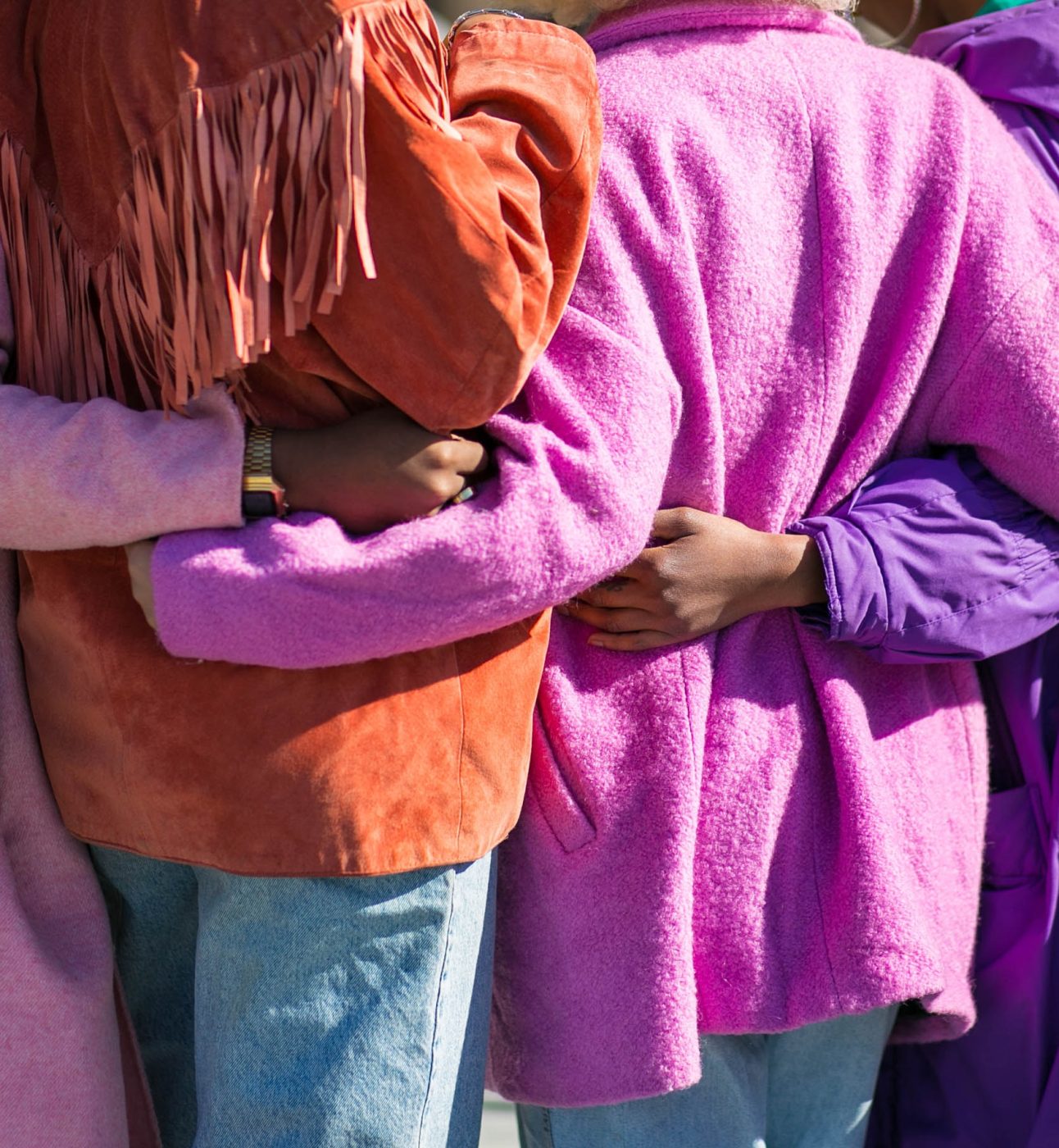Detailed response to the Race Report
The recent race report from the Commission on Race and Ethnic Disparities is relevant to us all. Too few individuals and organisations have been carrying the burden of tackling racism and bringing attention to issues of race on their own for too long. Since this report was released, we’ve heard frustration, anger and sadness from those who have been doing this work relentlessly for many years. We are adding our voice in solidarity.
We must prioritise – and listen to – people’s human experience of racism
The data and evidence used in this report appears to overlook the experiences of many Black, Asian and racially minoritised people, which has led to a missed opportunity to access the bigger, and more accurate picture of race in the UK. Instead, the reliance on what is superficially measurable lacks nuanced data and solutions. This also means that options for identifying the real nature of the problem and potential for change are ignored.
The report dismisses people’s own experience as ‘anecdotal’ rather than valued individually, and as a powerful cumulative evidence base when given enough consideration. If research shows (allegedly) no institutional racism but lived testimony does, where is the professional curiosity as to why that gap is there? We don’t have to choose between quantitative and qualitative data; the best evidence is a compelling combination of the two.
A state mandated report that denies institutional racism effectively gaslights all those who are subject to that racism, and the racism that perpetuates societal structures. This gaslighting has parallels with the experience of domestic abuse victims who are often gaslit by perpetrators or denied justice by institutions alleging to help them. As an organisation who recognise the harm that can be caused by coercive control and domestic abuse, we are alarmed by the denial of structural racism which the report concludes.
Racism needs to be understood as a systemic and societal issue
The report fails to underline that racist behaviour of individuals is part of a bigger systemic and societal problem. For example, the report mentions high rates of racist abuse online, in particular through social media platforms and targeted at women, and rightly points to the need for robust legislation, enforcement and corporate action. Yet the authors do not consider what the racist abuse represents in terms of a persistent societal problem; namely that those ‘anonymous abusers’ belong to our society, live and work amongst us, and their views and attitudes are being formed, somewhere.
The UK demonstrates many signs of societal racism: from the lack of contextual history in school curriculums, such as modules on the slave trade and colonialism; to the differing media responses to missing/abused people dependent on their racial background; to incidents such as the racist responses to the Sainsbury’s 2020 Christmas advert. Framing racism online as ‘anonymous abuse’ avoids the suggestion that it is a result of wider, societal racism. In turn, by not addressing the problem as systemic, it removes accountability from the state, undermines the severity of the abuse and prevents effective ways to combat it.
We recognise that affinity bias is one element of racial discrimination. Different minoritised groups have historically, or do currently, hold prejudicial views about each other. However, as the report says ‘All people, not just White people, are subject to these biases but it matters more if you are 84% of the population and tend to dominate the top positions.’
There will also be affinity biases and societal inequalities which relate to class, geography and sexuality. Suggestions by the panel that address all these issues, such as proper investment in universal services to everyone’s benefit, are really helpful. That doesn’t, however, mean that specific discrimination pertaining to race should not also be addressed. In our work, the disparities cited about maternal and mental health, and satisfaction with GP service, are three aspects of our health system through which many domestic abuse victim/survivors will appear, and at an early stage in their abusive situation. The report must acknowledge that when victims are entering these systems and institutions, the racism they encounter is bigger than one “bad apple” and that as noted above, racist views are still being formed somehow, somewhere. That process would have benefited from proper examination in the report.
We need to consider the bias in what is in/out of scope of the investigation – specifically, the report must address immigration.
What’s in and out of scope of the report is difficult to understand.
White working-class boys are repeatedly referenced as a specific group who need support and attention, but the differences in outcomes for Gujrati / Mirpuri immigrants to the UK doesn’t acknowledge the different religious groups Hindu / Muslim they largely belong to and what relevance this might have. The report fails to include the experiences of Islamophobia and anti-Semitism despite their huge impact on minority groups in the UK, and the intersections of religious and secular racial identities and how they’re often conflated by people with racist views.
There’s also a fundamental unwillingness to engage with some issues. There is not a single mention of immigration in the executive summary or recommendations, and no section on immigration status in the main body of the report. This instantly sets it up as a report that isn’t willing to look in the eye some of the most important issues about race in the UK – whether the immigration is current or historic.
We know that victims/survivors of domestic abuse whose immigration status is insecure are often trapped in a situation with additional barriers, such as fear/mistrust of the authorities, threats by the perpetrator to exploit the insecure immigration status, and lack of access to basic resources and work. Significantly limiting discussion of immigration also misses the opportunity to discuss how different experiences of legislation, policing, healthcare and cultural practices might impact on someone’s experience as a first or subsequent generation immigrant to the UK.
The absence of immigration in the report suggests the government has not learned the lessons from the Windrush Inquiry, which found the Home Office guilty of “Institutional ignorance”. Now the problem has been identified, there is no excuse for it to continue and for the same mistakes to be made.
We need greater attention placed on domestic abuse
Domestic abuse is not analysed in detail. Homicide and Crime Survey data would usefully have been enhanced with reference to Marac data which is openly available on our website, and considered of sufficient rigour and value to be used annually by ONS to capture the picture of domestic abuse in this country. That Marac data would have shown that many victims of domestic abuse are ‘missing’ from the largest single response to abuse in the country, despite being as likely to experience abuse overall, and more likely to experience protracted and severe abuse because their situation isn’t being identified and responded to appropriately. In the homicide data, there is clear evidence that Black and Asian women are disproportionately at risk of being killed by a domestic abuser. There is much more going on within abuse and homicide than the report attempted to capture. Positive comparisons with US homicide rates are not instructive ones, given the rate of gun ownership and use in the US compared to the UK.
Domestic abuse was significantly missing in the section on ‘family breakdown’. The recommendation that ‘mental health services encourage more family therapy and group support in the event of family breakdown’ showed a dangerous lack of understanding of coercive control and domestic abuse. This is an actively harmful recommendation if this results in victims being encouraged to have contact with the perpetrator.
Who are we listening to? Involving the right people and citing grassroots organisations who have put this issue on the agenda.
The report demonstrates a lack of consideration of existing frontline practice or who should be listened to and getting a seat round the table to create change. There’s no mention of the role of the National Black Police Association in discussion about reform in the police. Very little mention is made of charities and their crucial role, particularly at a grassroots level where levels of trust are much higher than with state organisations. Grassroots and ‘by and for’ organisations and activists have worked relentlessly for so many years to get this topic on the agenda and should have played a key role in informing the report and in what happens next.
A thorough, detailed examination of health services is essential
Maternal health disparities: Although low numbers overall, the data does highlight very significant differences. Rates of maternal mortality are four times higher for Black women and twice as high for Asian woman than for white woman. Given the opportunity maternal healthcare represents for sensitive conversations including about abuse, it’s vital to take notice of these numbers and consider what the barriers are that persist in creating equitable health outcomes.
Mental Health Disparities: The report cites research identifying persistent racism as a cause of mental ill-health. It proposes that stigma and myths about accessing mental health support should be broken down, but is lacking key consideration of what forms of mental health support are available and how well suited they are to different groups. If racism can be one cause of mental stress, doesn’t the composition of the workforce or their cultural competence to respond to that also merit attention? Again, the links between mental health issues and domestic abuse are very strong, not least in victim/survivors who have lived with abuse for long periods.
The report also notes that better data is required and suggests higher participation by ethnic minority groups in health research. We should also note the poor quality of data in the health service with regards to domestic abuse, at a fundamental baseline level (flags and markers to indicate abuse), but also with regards to disaggregation of data in terms of race and other protected characteristics which would help understand the different experiences people are having.
To conclude, there are undoubtedly recommendations to support in this report, such as abandoning the term ‘BAME’. Black, Asian and racially minoritised people are not a homogeneous group, and their experiences and identities differ widely. We call on the Government to constructively engage with the content in this document and hope it contributes to a braver and more comprehensive report, and subsequent action.
You may also be interested in

Equity, equality, diversity and inclusion

